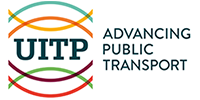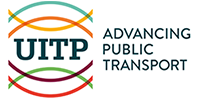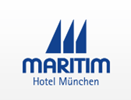
Go Smart, Go Rail
Event description
In the wake of the Smart City, rail transport has a key role to play in the transformational efforts to move millions of people more efficiently. The 2015 UITP Rail Conference will analyze whether our sector is embracing the potential the Smart cities concept brings: Is the smart city concept driving change in the rail industry? Can local rail companies run smarter operations?
28 October
Plenary Session 1 - Opening
This session will provide the framework for the following 3 days of intense professional exchange and introduce you to the exceptional performance of rail transport in Munich and Bavaria. In addition to the introduction and welcome addresses by UITP, the city and the local hosts, we are striving to offer an exceptional and inspirational keynote speech. At the time of printing, this could not be finalised yet, but be sure that a surprise awaits you.
- Welcome: Dieter Reiter, Mayor of Munich, and by UITP President
- Munich transport success story: Herbert König, CEO, MVG, Germany
- Keynote speech: Speaker to be announced
Parallel Session 1 - Metro
This session will showcase flagship metro projects and initiatives addressing key challenges affecting the metro sector; from the renewal of mature systems, to the strategic implications of the deployment of smart technologies and the role of metros in shaping urban development and changing mobility habits.
- Planning modernization of metro stations smartly | Gunnar Heipp, Director – Strategic Planning Department, Münchner Verkehrsgesellschaft, Munich, Germany. Other speakers to be announced
Parallel Session 2 - Regional and Suburban Railways
Cities are not closed, autonomous places. To develop and thrive, they need good connectivity beyond the reach of traditional metros and trams: to the world, but especially to their hinterland and neighbours. Railways have always developed in narrow cooperation with city development and will continue to do so smartly in the 21st century.
- Crossborder commuter services between Munich and Salzburg | Christian Schreyer, General Manager, Transdev Verkehr, Berlin, Germany
- Renaissance of three passenger railways in Brazil | Flávio Mota Monteiro, Companhia Brasileira de Trens Urbanos – CBTU, Rio de Janeiro, Brazil
- Title to be announced | Johann Niggl, Bayerische Eisenbahn Gesellschaft, German
Parallel Session 3 - Mixed Mode
Many rail systems are legacy built over decades. In the early 80s, the concept of LRT triggered a renaissance of tramways by giving it some attributes of metro; later, tram-trains were introduced, expanding the geographical outreach. Now metros and commuter railways mesh increasingly smartly, making the borders between modes increasingly blurred.
- Making rail and bus work together for the better | Pere Calvet, Chairperson of the UITP Metropolitan Railways Assembly and Director General, Ferrocarrils de la Generalitat de Catalunya, Barcelona, Spain
- Smart mix of express & regular metro services | Peter Lunden-Welden, CEO, Seoul Line- Operation Co. Ltd., Seoul, South Korea
- Aspiration vs. reality on mixed operation rail networks | Ian Ambrose, Future railway development manager, Network Rail Infrastructure Ltd., Derby, United Kingdom
- ComplexTrans – a disruptive rail based mixed city and intercity transport for persons and goods | Jiri Hofman, Technical specialist, Skoda Transportation A.S., Plzen, Czech Republic
Parallel Session 4 - Safety
If railways can boast excellent safety records, it is only through dedication, professionalism and commitment of staff, efficient communication with the public and through innovation and reliability of equipments. Rail will never compromise on safety, but can approaches, processes and tools not be designed in a smarter way?
- Tramway safety in open public space | Laetitia Fontaine, Chargée d’Affaires Tramway, Ministère de l’écologie, du développement durable et de l’énergie, France
- Driver assistance systems to reduce tram collisions | Michael Rüffer, Geschäftsbereichsleiter Schiene, Verkehrsgesellschaft Frankfurt Am Main MbH, Frankfurt, Germany
- Revisiting safety assessment processes | Nikhil Swami, Executive Engineer, Kolkata Metro Rail Corporation Limited, Kolkata, India
- AGIL: an innovative decision support tool for incident management | Carles Casas Plenary Casas Esplugas, Senior Advisor, Ferrocarrils de la Generalitat de Catalunya, Barcelona, Spain
Plenary Session 2 - Customer and Last Mile
Customers require and deserve excellent service. After safety, service quality is one the most important items to keep in mind in railways, and it is not the case everywhere. In addition to service design, certification and staff training, smart IT provides an opportunity to improve, especially through interactive dialogue and facilitation of multiple last mile options.
- Service excellence and customer care delivered… every day | Yow Wee Siu, Director, Passenger Service Department, SMRT Corporation Ltd., Singapore
- SMART New York - Advanced interactive info kiosks | Andrew Bata, Chief – Strategic improvements and best practices, MTA New York City Transit, New York, United States of America
- Multi-modal synchronization delivers higher quality of service | Arjan van Andel, Director of Business Development, GIRO Inc, Arnold, United States of America
Welcome Reception at MVG Museum
29 October
Plenary Session 3 - CEO Discussion
Ensuring adequate funding is crucial in a context of growing demand and increasing quality expectations from customers. Ensuring a viable future critically relies on the capacity of the sector to combine funding considerations with the development of a new business model and the integration of public transport with other urban policies. The topic provides ample food for an exciting discussion among well-known CEOs of railway companies of various profiles. Can they find the key to provide a winning mix for public transport?
- Moderator: Alain Flausch, Secretary General, UITP
- Panelists to be announced
Parallel Session 5 - Light Rail
Over the last three decades, LRT has proved to be a successful solution to offer high quality transport services and a powerful tool to boost urban regeneration. Evolution in the last years and in years to come shows that new continents are following the same path and the future looks bright. This session will allow to take stock of recent evolution or of the long-lasting impact of smart Light Rail.
- What 20 years of LRT renaissance have to say about mobility behaviours in Ile-de-France? | Crystal Langlois, Consultant, RATP, Paris, France
- Building the total transit network in the Valley of the Sun | Stephen R. banta, CEO, Valley Metro, Phoenix, United States of America
- The latest Munich trams – challenges and experiences | Christoph Klaes, Vice President Light Rail, VAL, eBus & eBRT, Siemens Aktiengesellschaft Oesterreich, Vienna, Austria
Parallel Session 6 - Delivery of Large Rail Projects
This session will present best practices and innovative solutions to deliver large rail projects. How can industry suppliers better support operators and authorities. What new smart cooperative models can be put in place? How early should the operator be involved?
- Speakers to be announced
Parallel Session 7 - Maintenance
Maintenance has always been a significant cost driver, the “invisible” guarantee for reliability and quality of service. Modern smart equipments are bringing about a paradigm shift through their ability to inform precisely about assets’ technical status in real time. Condition-based maintenance can increase cost efficiency, but requires a profound reshaping of maintenance organisation and processes.
- Predictive infrastructure maintenance activities in Vienna | Andreas Oberhauser, Head of Business Unit Infrastructure inspection, Wiener Linien, Vienna, Austria
- Smart railway maintenance in Japan | Kenichi Yoshida, Chief Researcher, Research & Development center, East Japan Railway Company, Tokyo, Japan
- Are trains to be scrapped when spare parts are missing? Criticality of obsolescence management | Lambert van Ouwekerk, Rolling Stock Sales Manager, Strukton Rail BV, Maarssen, The Netherlands
- Presentation title to be announced | Johannes Emmelheinz, Siemens AG , Austria
Parallel Session 8 - Energy
Energy represents 15 to 20% of the operation expenditures of railways. If operation of rail transport is to remain cost-effective, all options for smart energy use have to be explored and exploited: operational measures as well as technologies.
- Boosting the Victoria Line’s energy efficiency | Andrew Gray, Power engineering unit, Transport for London, London, United Kingdom
- Eco-driving strategies for rail – feedback from Turkey | Suleyman Acikbas, General Manager, Railsys Engineering & Consultancy, Istanbul, Turkey
- Way-side regenerative braking to cut CO2 and your energy bill | Nozomu Ashida, Deputy Director – Paris office, East Japan Railway Company, Tokyo, Japan
- Energy-optimisation centred train refurbishment | Thorsten Bomke, Market Portfolio Director, Alstom Transport, Paris, France
Plenary Session 4 – Supplier - Operator Debate: What To Expect Tomorrow for Rail Customers and Last Mile?
Railways are intricate systems and their technical complexity is increasing. To deliver affordable railways, smart cooperation is required between suppliers and operators. This debate will bring together top senior figures of both sides to discuss critical issues such as product quality and reliability, homologation and acceptance processes, partnership for maintenance, new business practice, payment and warranty, etc.
- Moderator: Chris JACKSON, Editor-in-Chief, International Railway Gazette
- Panelists to be announced
Closing Session - The Case for Rail
Gala Dinner (Nockerberg Traditional Bavarian Brewery)
30 October
Morning: Light Rail And Regional Or Suburban Railways Technical Visits
Afternoon: Metro Technical Visit Or Siemens Factory In Allach
(Details to be announced)
Event location
Contact information

International Association of Public Transport (UITP) Rue Sainte Marie 6 1080 Brussels Belgium eu
Nathalie Simon Nathalie Simon
Tel: +32 02 673 61 00 Fax: +32 02 660 10 72
Join our community for FREE today!
Create and share your own profile
Join the discussions
Publish your own items
Subscription to our Weekly eNewsletter
Get connected with Mass Transit Professionals Worldwide
FREE membership benefits
- * create and share your own profile
- * join the discussions
- * publish your own items on Mass Transit Networkmanage news, jobs, tenders, companies, events, showcases, educations, associations and literature.
- * subscribe to our eNewsletter





Comments
There are no comments yet for this item
Join the discussion